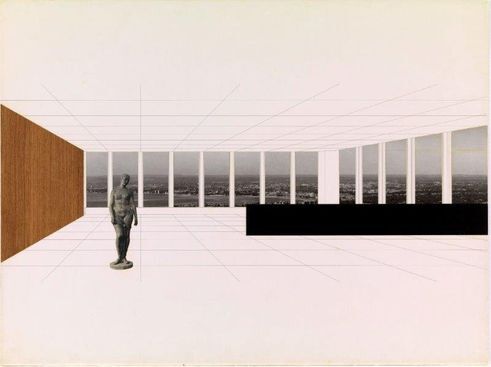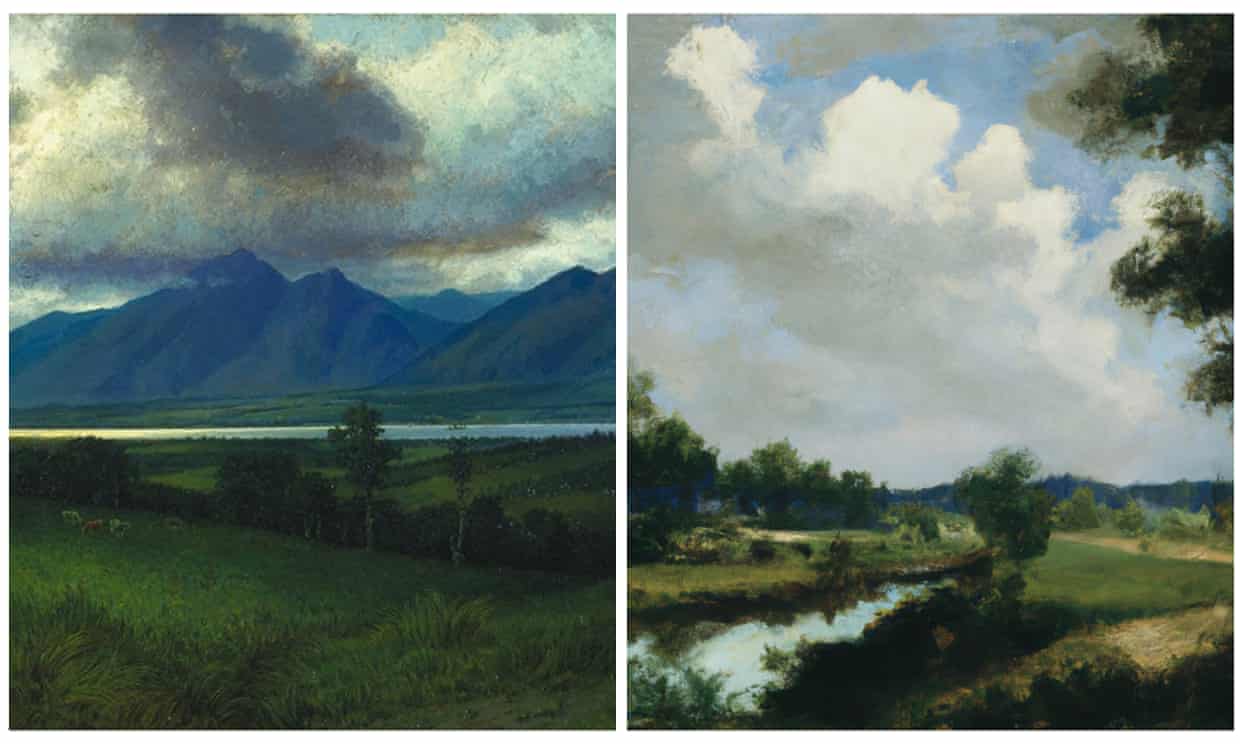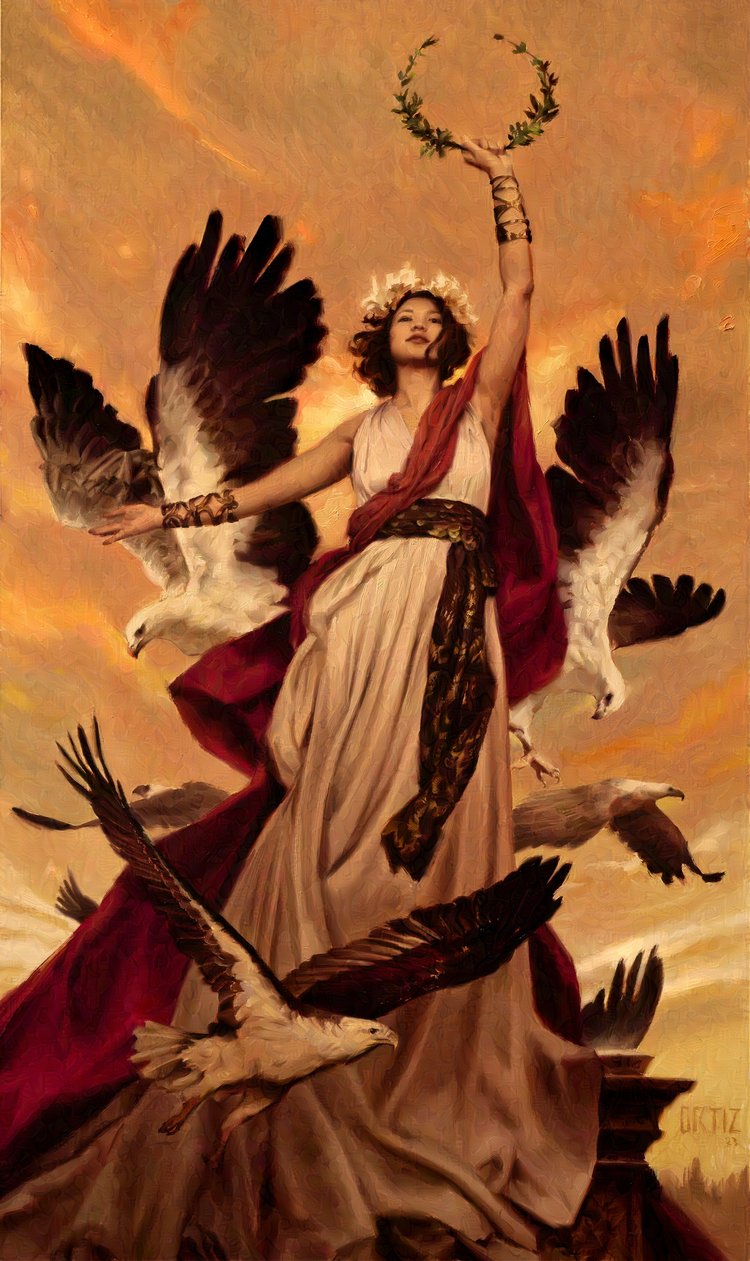 Azath Vitr (D, on 19 March 2023 - 04:45 PM, said:
Azath Vitr (D, on 19 March 2023 - 04:45 PM, said:
I addressed most of these arguments at length in the 'What's messing with your groove' thread. This thread is supposed to be for pics, not debate about the ethics of AI art. So I'll just respond briefly:
1. Learning from peoples' art to create original works in similar styles is not stealing. There's a large amount of misinformation going around on the internet. See the other thread for details.
2. Artistic styles are not protected by copyright. Most of the artists complaining make extremely derivative representational art. However, if an artist does have a very distinctive and original style, even though it's not protected by copyright I do think there's a nontrivial ethical issue with flooding the market with copies of their style. But this will probably have minimal effect for most galleries / museums / high-end art collectors, because the value of a work is tied to its provenance (which incidentally makes the copyright issue for these venues mostly irrelevant).
3. Purely AI generated works can be copyrighted in the UK but not the US or France. So where the distinctiveness of the IP itself is not enough to guarantee protection (images of superheroes, distinctive franchise designs ('Star Wars'), etc.), most commercial applications will still desire enough human intervention for the work to be copyrightable. Though some have already adopted it---for example, several of the leading music sample library creators have added what clearly appears to be AI generated art where before they had seemed like crappy and completely forgettable stock images.
4. If the training sets for ML based art were legally limited to the public domain or IP owned by the training entity, IP holders like Disney---or any company with enough money to buy usage rights from those IP holding companies---would almost certainly still be able to create AI generated art of similar quality. So in that scenario use of high quality generative AI would probably be limited to large corporations (or those they choose to give access, for a fee...). And the vast majority of commercial artists would still not be legally entitled to compensation.
5. On 'authenticity': for commercial art, do most people care if CGI in a movie/TV show or imagery in an ad was 'hand-crafted' by humans or not? No. For the gallery/museum 'art world' the idea that an artist must hand-craft every aspect of a work for it to be 'authentic' mostly died out a long time ago. 'Authenticity' as naively understood does not stand up well to scrutiny (though if you want 'authenticity' as not just technical skill (by machines or humans) but the imagination, emotion, expression, and play of patterns and concepts that technical skill makes easier and more effective---then in the near to mid future noninvasive, portable, and relatively inexpensive brain-computer interfaces and other biometrics should integrate well with thoroughly tweakable AI models).
For people at cons and genre art---sure, some people will place a premium on getting something by a human artist. (Incidentally, a large % of sales at cons are in open violation of copyright law; protected franchise IP tends to sell the most.) But the ability to easily generate a large number of unique images at low cost will probably decrease demand for work by human artists (unless it increases overall interest enough to compensate, or anti-AI backlash drives sales---especially if people who are afraid of AI taking their jobs or subverting misplaced notions of human supremacy channel those emotions into buying art). There may be more of a switch to mediums that can't easily be replicated by the standard printers most people have access to.

Image for control, good ol' Mies Van der Rohe
1. Training software to replicate and manipulate imagery off a particular data set pulled from the web without permission or consent is not "learning" in the traditional sense. It's not the traditional angle for an argument on art theft as presented in a court of law. I don't think it makes sense to use traditional values of the law in this regard.
2. Style is a product of method and process. If AI assimilates the resultant 'look' derived from a method that it cannot replicate then clearly its an acknowledgement of the representative methods efficacy. Would you want AI art that only produced art like a 1st grader? Of course not. You want art that looks like [insert example here]. Recognizability is more valuable than actual image quality and recognition is attached to style. The ability to replicate a style is only attractive to someone looking to take advantage of that form of representation. Again not the lynch pin around which major legal arguments for theft have been made but it's worth a quizzical look since some of the prompts appearing in art generation software like Dali actually label certain prompt tags after actual artist names Eg. Style: 'Stanley Lau aka Artgerm' or 'Lunis' or 'Kortiz' etc. I think that's it's own separate issue and some AI generators have done well to not cross this particular line.
3. This is a fluid stage for the technology. A lot is hinged on how court discussion goes. I neither credit nor discredit the UK, the US or any other country adopting an initial stance on the issue. they are not, in anyway, in the right or in the wrong whilst the ground work is being established in the arenas of litigation and policy.
4. Grounds for compensation rely on too many factors to apply a uniform approach to who is deserving and who is not. If the copies are exact, grounds are high, if the copies are derided several steps from the original, grounds are low. Add to that the aping of meaning versus the transformative aspect of an artwork and there's a trillion different ways an artwork could be seen as a copy or as a transformation. I think this is a losing battle and isn't worth fighting for artists. There's more benefit for a wronged party in preventing the use of work in 'training' AI. I think protecting work digitally is the only way to resolve the problem as legal contestation over copyright is time consuming, financially draining and rarely an even playing field. All the Lawsuits against Blizzard/Disney/Marvel show you how power and influence can, and will, affect legal proceedings around IP. Have a look at the lion kings 'the lion sings tonight' where Disney never paid royalties to the author of the song during their life time. AI companies will be just as disinclined to acknowledge the work of the artists they've used. Modern copyright law is not an ethics engine.
5. Authenticity is worth discussing. When I speak to authenticity I speak about the sense I get from an artwork that another person is trying to tell,show,share a thought, feeling, experience. I get the sense of meaning from artwork with true deliberate intent. Authentic works manage this in a variety of ways and as I say above, AI generators can manage this. At the moment AI art tends to give a stock, impersonal feel, reliant on colour complexity and plaster finishes rather than narratives that convey a point through medium, tone and scale. I love that as the technology gets better, people have gotten better at meshing AI into traditional workflows to introduce meaning, that's exciting to see! But the stuff an AI generator spits out on the fly is still far from that authenticity you get from deliberate, hand-developed artwork.
I believe ease of access to AI will speed up the creation of bad art, which is good. I believe people improve fast when they fail faster. I think lessons on what makes things authentic will be learned by more people at an increased rate and that might open people up to other artistic options. Ultimately I think I want AI to find its place in the world in a non-exploitative manner. Part of that is people taking the process of securing their artwork seriously, part of that is AI being a lot more genuine in its approach to data training. This all hinges on how general law interprets the AI models currently in place.
This post has been edited by Dolmen 2.0: 20 March 2023 - 07:55 AM











 Help
Help






























